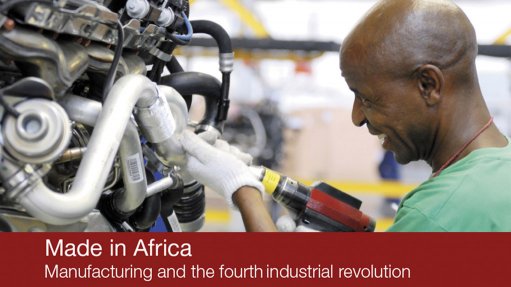
A newly released study into prospects for manufacturing in Africa offers a relatively upbeat assessment of the industrialisation opportunities that could arise should governments move decisively to harness the disruptive trends associated with the unfolding fourth industrial revolution.
Titled ‘Made in Africa: Manufacturing and the fourth industrial revolution’, the report has been written by Institute for Security Studies founder and chairperson Dr Jakkie Cilliers, with support from the Hanns Seidel Foundation and the Swedish International Development Cooperation Agency.
It concludes that, while the contribution of manufacturing to gross domestic product has stagnated since the mid-1980s, Africa will not close its income gap with the rest of the world in the absence of greater industrialisation. The report also warns that the current rapid expansion of retail services is retarding growth.
“Rather than improving productivity, Africa’s structural transformation from low-productivity agriculture to low-productivity urban-based retail services has therefore been ‘growth reducing’. This is because the share of workers employed in high-productivity sectors such as manufacturing is declining, offsetting positive ‘within sector’ productivity growth.”
Speaking at the release of the study in Pretoria, Cilliers stressed that the labour- and capital-intensity of manufacturing was decreasing. Nevertheless, without moving up the productivity value chain “Africa will remain poor”.
Reversing the prevailing trend of premature deindustrialisation would require a “huge effort” by governments in support of the expansion of their productive sectors of economy.
However, Cilliers argued that the social and economic rewards associated with targeted interventions to support industrialisation could increase Africa’s average yearly growth rate to 2040 by two percentage points to 6.5% and reduce, by 200-million people, the number of Africans living in absolute poverty.
The fourth industrial revolution offered Africa opportunities for “leapfrogging”, as well as to take advantage of the likelihood that some goods would be produced and consumed in regional rather than global markets.
“African countries must begin by trading among themselves, integrating their isolated markets. Such an approach will eventually make it possible to modernize African agriculture, potentially an important source of food, income and employment opportunities.”